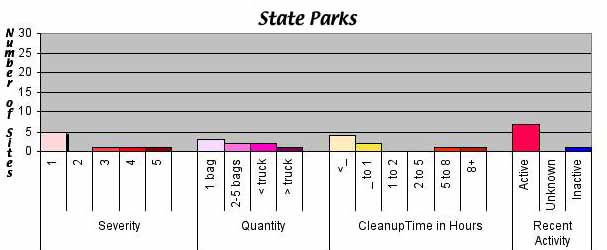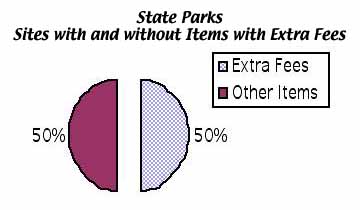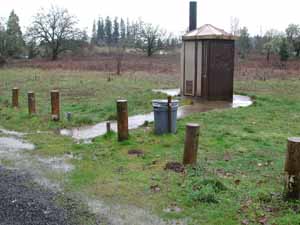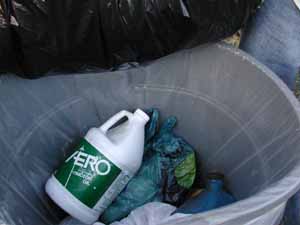
Physical
Inventory: State Parks |
| The area of our study is in the Southern Willamette Management Unit, one of six management areas in Oregon. State Parks is committed providing and protecting natural scenic, cultural, historic and recreational sites for the state. The agency is committed to reaching eight goals, titled "Target 2014," in the next decade. Prevention of illegal dumping is included. |
| A total of 8 sites located at day-use parks, campgrounds and boat ramps were surveyed for State Parks. These include sites within the Fall Creek State Recreation Area, Southern Willamette State Parks, the Pengra boat ramp, and Logjam State Park. Included on this page are graphs and some examples of dumpsites. |
 |
These
graphs summarize the State Parks dump sites found in the project
area. Severity was is a measurement that takes into account several
different things, including clean-up time, scale of dump site, and
hazardous or difficult materials. Quantity and Clean-up time are
approximate values. Recent Activity refers to frequently used sites. |
 |
This graph illustrates a common trend with the type of trash which is illegally disposed. The majority of sites have items with associated fees at transfer stations throughout Lane County. These items include construction wastes, tires, large appliances and yard debris (which isn't even accepted at the transfer stations within our area). Other items commonly found were: household garbage, recyclable glass and animal carcasses. |
| Some
Examples of Dumpsites found on State Parks Land |
|
 |
Logjam
Access This site is regularly cleaned by a ranger, indicating that it is frequently used for recreation and illegal dumping. Recreational waste, such as beer bottles and cigarette butts, as well as household waste, such as roofing and auto parts, are common. A gate is present, but seldom closed, so dumping can occur at any time. |
 |
Generic
Household Trashcans and dumpsters are the target of illegal dumping in the form of household trash. Common dumped items include kitchen waste, automotive parts, construction materials, diapers, and other wastes associated with residential living. |
 |
Generic
Littering Common roadside litter is present at all State Parks and public access areas surveyed. This problem is noticeably less significant in areas of limited access such as fee and day-use only areas. |